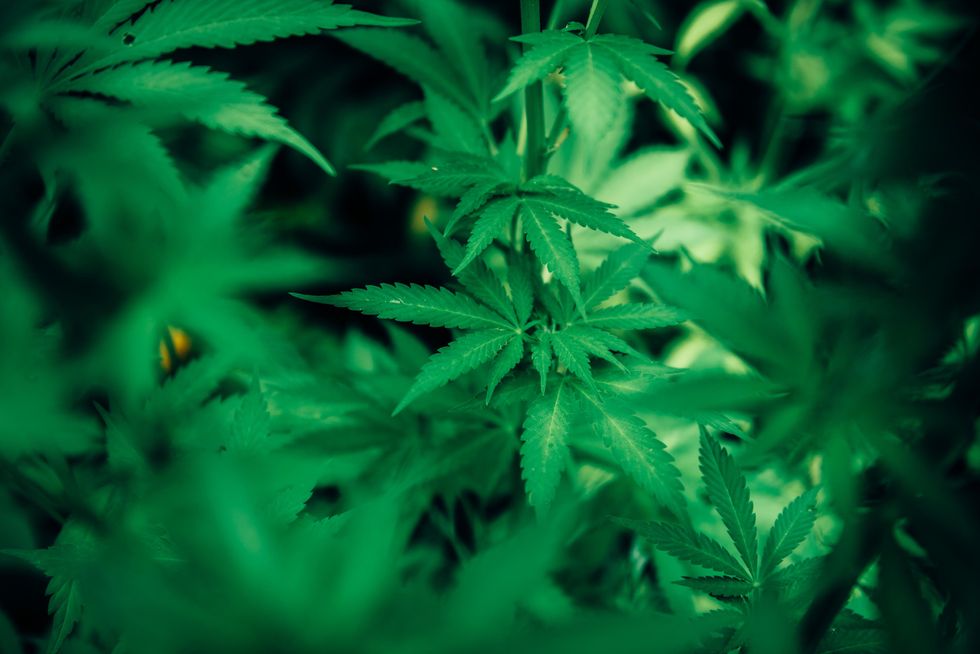.
Cannabis is a plant that has been used for centuries for its medicinal properties. It is only in recent years that its recreational use has become more prevalent. Cannabis contains a chemical called THC, responsible for the plant's psychoactive effects.
Cannabis can be consumed in various ways, including smoking, vaporizing, and ingesting. The effects of marijuana seeds depend on the method of consumption, the strength of the cannabis, and the individual's tolerance. The results of cannabis can include relaxation, increased appetite, and altered perception. Cannabis can also have adverse effects, such as anxiety and paranoia.
Cannabis use is not without risks. Some potential risks associated with cannabis use include addiction, impaired memory, cognitive function, and respiratory problems.
How Cannabis Affects the Brain and Body
Cannabis, also known as marijuana, is a psychoactive drug from the Cannabis plant. The main psychoactive ingredient in cannabis is tetrahydrocannabinol (THC), responsible for the “high” people feel when using it.
Cannabis affects the brain by binding to cannabinoid receptors in various areas throughout the brain and body. These receptors are part of the endocannabinoid system, which helps to regulate many different functions, including mood, memory, appetite, and pain sensation.
When THC binds to these receptors, it alters their function and can result in changes in perception, mood, consciousness, and behavior. Cannabis also affects the body by causing changes in heart rate, blood pressure, and blood sugar levels. It can also increase appetite and cause weight gain.
Short-Term and Long-Term Effects of Cannabis Use
Short-Term Effects:
Cannabis use can result in several short-term effects. These effects can vary depending on the person, the method of consumption, the strength of the cannabis, and whether other drugs are also being used. Short-term effects of cannabis use can include:
- Euphoria
- Relaxation
- Altered senses (for example, seeing brighter colors)
- Altered sense of time
- Increased appetite
- Paranoia or anxiety
- Poor coordination
- Dry mouth
- Red eyes
Long-Term Effects:
Cannabis use can also have several long-term effects. These effects can depend on many factors, including how often someone uses cannabis, how long they have been using it, and whether they started using it at a young age. Long-term effects of cannabis use can include:
- Impaired memory
- Difficulty concentrating
- Decreased motivation
- Anxiety
- Depression
- Increased risk of developing chronic (long-term) lung problems
- Risk of developing certain types of cancer
What would be the economic impact of legalizing cannabis?
According to a report, the national decriminalization of cannabis seeds in the United States could generate $128.8 billion in tax revenue and 1.6 million new employment. Indeed, data from states where cannabis is legal during current health and economic crises back up these statements.
Even amid the worst economic slump since the Great Depression, cannabis sales in places where it is legal remain strong. April revenues of cannabis in Illinois, the first whole month of commerce under the state's stay-at-home order, surpassed $37 million, making it the second biggest sales month since the state program was created in January. Cannabis customers in Oregon purchased $89 million in legal cannabis, a 46% rise compared to the same month in 2019. Similar sales surges have been observed in states across the country.
It is claimed that illegal cannabis trafficking accounts for 30% of Mexican drug cartel earnings, which would essentially evaporate with legalization, much like removing alcohol prohibition soaked up a significant chunk of these gangsters' profits.
Eliminating marijuana prohibition should be a significant and conspicuous element of the nation's political plan, according to several experts, if the nation enacts a comprehensive approach to recover from the economic depression.
What are the benefits of legalizing cannabis?
The benefits of legalizing cannabis are many and varied. One of the most significant is that it would allow for better regulation and control of the drug. Currently, cannabis is produced by various methods and in multiple places, many of which are unregulated and illegal. This means there is no quality control over the drug, and it may be contaminated with other substances. Legalization would regulate production methods and locations, ensuring that the drug is safe to consume.
Another benefit of legalization would be increased tax revenue. Currently, the sale of cannabis is untaxed, meaning that the government misses out on potential income. If cannabis were legal, it would be subject to taxation like any other product, generating much-needed revenue for cash-strapped governments.
Finally, legalization would allow for greater research into the potential medical applications of cannabis. Currently, research into the drug is hampered by its legal status; if it were legal, scientists would be able to study it more freely and develop new treatments for various conditions.
While it is too soon to say whether or not cannabis will be legalized, it is a fact that its decriminalization will help the nation with economic depression and will also help in decreasing the crimes which occur due to the illegal trading of cannabis seeds.
What do you think about this? Are you also one of the 66% of Americans who support legalization, or do you oppose the notion? Let us know below.




 StableDiffusion
StableDiffusion StableDiffusion
StableDiffusion StableDiffusion
StableDiffusion Photo by
Photo by  Photo by
Photo by  Photo by
Photo by 
 Photo by
Photo by  Photo by
Photo by  Photo by
Photo by  Photo by
Photo by  Photo by
Photo by 











